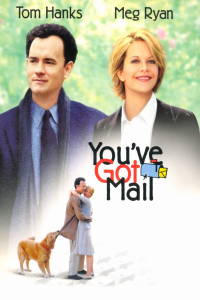
How to engage on social media: Twitter
There is a bias in the business world against Twitter that I don’t comprehend. To me it is the friendliest and easiest place to engage in of all the platforms. Of course, that’s once you understand a few things about Twitter. The blog post you’re reading right now is part of How to Engage on Social Media: The Complete Guide.

Create Moments
Creating Moments
A relatively new addition to Twitter is called Moments. You can create your own Moments or look at other people’s moments. Anyone can create a moment. From Twitter Home ==Go to Moments == Click Create Moments (upper right corner). Upload your own photos or add tweets — I called mine San Francisco Lights. Choose your tweets or photos, choose a cover and title and publish! It took me about 15 minutes.

The Number One Mistake People Make on Twitter
The Number One Mistake People Make on Twitter
Don’t start your tweet with the “@” sign if you want everyone to see it. Add a “.” in front of the “@” sign so that everyone can see it. Yes, that issue’s been around forever. If you need to know more, head over to Gary Vee’s SlideShare (it’s only a minute, trust me!).

Leave Some Space
Leave Some Space
Don’t use up all 140 characters. Use something like 100-130 if you want retweets. Your real estate is limited.

Add images for more retweets.
Add Images for more Retweets
Images and videos are gaining momentum on Twitter. In fact, you’ll get 313% more engagement if you tweet with images, according to Twitter. So do use images for more engagement.

Audience
Audience
According to Pew Research:
Some 23% of online adults currently use Twitter, a statistically significant increase compared with the 18% who did so in August 2013. Twitter is particularly popular among those under 50 and the college-educated.
Is that your demographic? If so, then you’re in the right place.

The Language
The Language
Twitter is the land of hashtags (not too many–one or two is fine!), and abbreviations. Also, emojis are popular on Twitter. Here are some abbreviations.
@ sign = a user’s name. For instance, I’m @Carol_Stephen on Twitter.
RT = Retweet. Means you’re repeating something and giving credit to that person as well.
OH = Overhead.
MT = Modified tweet. Sometimes you have to remove/change a tweet and this is how you alert people that you’ve changed it.
# = hashtag. Hashtags help you organize your tweets. For instance, #cheese will organize tweets about cheese.

Hashtags
Hashtags
Don’t be afraid to use hashtags, especially if the hashtag can help others see the content of a tweet. A hashtag helps others to identify a tweet. For instance, if you’re tweeting about an article on autism, you could add #asd (autism spectrum disorder) to the tweet. If you’re tweeting about an event, you can add the hashtag event, such as #wcoc (WordCamp Orange County). Some brands have their own hashtags. For instance, the San Francisco Giants use #sfgiants and if you tag your tweet that way, you may be featured or retweeted by the Giants!

Emojis
Emojis
If you’re on mobile, which most people are now, you have access to many emojis. Hearts and smiley faces can let people know the feeling behind a tweet, in case there’s any doubt–or if you want to add more sentiment.

Formality
Formality
Twitter is one of the most easygoing, informal of all platforms. Think of it as a backyard bbq. It’s easy to talk to people, and there’s a laidback feeling to it.
Getting colder Carol @Carol_Stephen but still great. Best wishes to you
— Toyota Equipment (@ToyotaEquipment) December 4, 2016

How to Engage?
How to Engage?
Say hello to people. If you’re just getting started, this is the easiest way to begin. Above is one real example. You can start with asking about the weather, telling people to have a nice weekend, and so on. Notice that my tweet begins with the “@” sign. So only those who follow both @ToyotaEquipment and myself will see that tweet. @ToyotaEquipment’s reply to me starts with text, so that tweet is more public. See the difference?
Here are a few other ideas:
- Ask a new follower a question about their profile.
- Ask someone you’re connected with for advice for a topic they’re an expert at.
- Comment on someone else’s tweet and retweet it.
- Tell others to follow someone whose account you enjoy.
- Introduce two people who have something in common.

Lists
Lists
Once you have found a few people who like to engage, you can add them to a list. Here’s a post about using lists on Twitter. For instance, you could create a list called Engagers or Friendly People.

Sharing
Sharing
How much of your personal life will you share on Twitter? It’s a good idea to decide beforehand. My rules are to avoid sex, politics, and disasters. And when I’ve broken my own rules, I’ve had to pay. For instance, during the divisive election recently, I wrote about politics and lost followers. If you have to talk about something divisive, you may want to set up a separate account for that. As a business, I’d avoid those topics, though.

Tagging
Tagging
Just because you can tag, doesn’t mean you should tag. If a conversation doesn’t really involve someone else, for the love of all that is holy, please remove them! It’s like being on a long bench of people and everyone between you and the person you’re talking to has to listen. Don’t force everyone to listen. On the other hand, if the people are actively involved in a conversation, then yes, keep adding them!
How Do You Engage on Twitter?
Leave me a comment!
Digital & Social Articles on Business 2 Community(47)
Report Post






